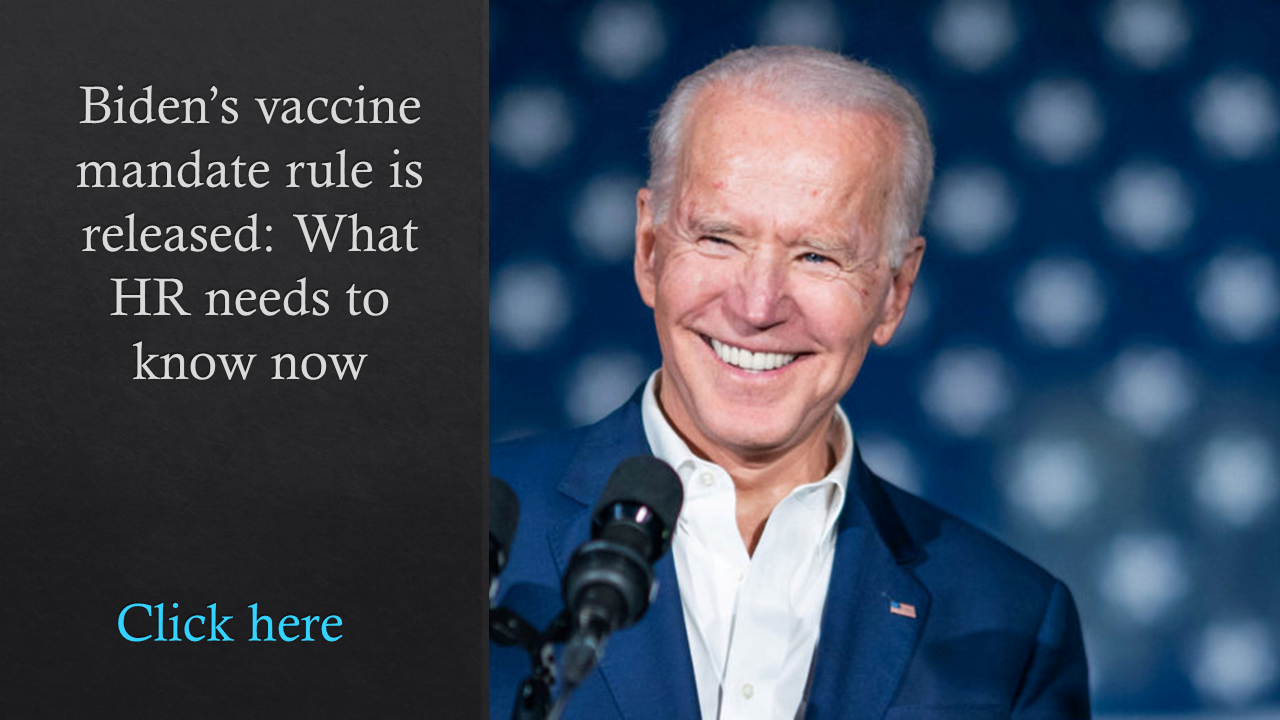In the wake of President Joe Biden’s mandate for scores of employers to mandate the COVID-19 vaccine for their employees, job listings that include COVID-19 vaccination requirements are soaring.
Job postings requiring vaccination doubled between September and October, according to data from the job site Ladders. Now, about 5% of all postings for high-paying jobs mention vaccine mandates–a 100% increase in just one month. And that number is expected to rise substantially in the coming months and eventually will become the standard, not the exception, experts say.
The new data included jobs posted on Ladders as well as in-depth analysis of millions of high-paying jobs–which, for this research, analysts defined as jobs that pay $80,000 or more–posted on other sites and individual company websites in the U.S. and Canada between June 2019 and October 2021, researchers said.
Ladders analysts also found that employers in blue states are more likely to note COVID-19 vaccination requests than businesses in red states. Red states had an 81% increase between September and October, while blue states saw a 113% increase.
Ladders CEO Marc Cenedella says workplace vaccine mandates will become the standard, not the exception, especially considering that it has been historically uncommon for companies to include this type of information in job posts.
“It’s very rare for us to see something where there is 100% growth month over month in the behavior change of how companies handle corporate job postings,” Cenedella says. “At this level alone, it’s unprecedented.”
Related: The employer COVID-19 mandate: 5 things HR leaders should do now
The surge in employers including vaccine requirements in job ads comes as COVID-19 vaccine mandates are rising among organizations. That’s both a result of employers–like United Airlines, Microsoft and Tyson Foods–choosing to mandate vaccines due to the Delta variant surge that occurred earlier in the fall, as well as Biden’s upcoming requirement for private employers. Biden’s mandate, which was unveiled Nov. 4 by the Occupational Safety and Health Administration, requires employers with 100 or more employees to implement a COVID-19 vaccination requirement for their employees–or to offer a weekly testing alternative for those who refuse or are unable to receive a vaccine–by Jan. 4, 2022.
Related: These employers are requiring COVID-19 vaccines
Although there have been concerns over how vaccine mandates will impact turnover–especially of unvaccinated employees–Cenedella says he doesn’t expect mandate-related walkouts and protests to reverse the trend of employers’ vaccine requirements. “Walkouts are principled decisions in response to things like vaccine mandates, but you have to understand that the companies are making a decision about what’s best for their business,” he says. “I think companies are taking into account that some percentage of their workforce will walk out.”
Although turnover remains a concern for many employers especially in a hot job market, industry insiders say it isn’t playing out as badly as some predicted. Recent research from the Kaiser Family Foundation, for instance, found that just 5% of unvaccinated workers–and 1% of all workers overall–said they left a job because of a COVID-19 vaccine mandate from their employer. Experts also believe employers’ fear of losing employees to a vaccine mandate will lessen as more employers put those requirements in place; with more mandates in place, employees will have fewer places to work if they refuse a vaccine.
Related: Is your talent really walking out the door to avoid a COVID vaccine?
Overall, Cenedella expects that vaccine mandates in job postings will increase “dramatically” over the next several months and by this time next year will stabilize. “It’s going to become so commonplace that it’s going to be assumed rather than requested,” he says.



